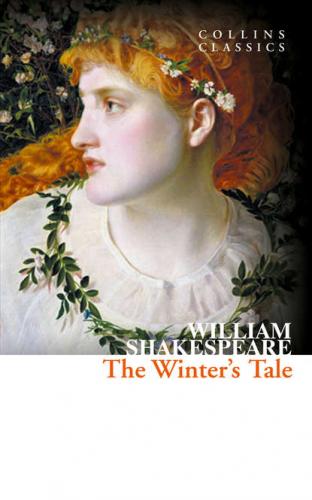The meeting of Perdita with Leontes, her father, which could have been one of Shakespeare’s reconciliation set-pieces, is reported at second hand in order to preserve the grand climax for the restitution of Hermione. There, at the end, is the Statue Scene when Hermione rises, as though from the dead, and joins her repentant husband.
So far from attempting to seem naturalistic, the text drives home the impossibilities: ‘That she is living,/Were it but told you, should be hooted at/Like an old tale’. But Shakespeare has paid the ‘old tale’ of his former enemy, Robert Greene, the supreme compliment of turning it into high drama. Leontes says, ‘I saw her,/As I thought, dead; and have, in vain, said many/A prayer upon her grave’. However, the prayers have not been in vain. The whole scene is an acting out of resurrection.
The extravagance of the plot is matched by that of the structure. Such critics as the Italian, Castelvetro, and the Englishman, Sir Philip Sidney, thought that the Greek philosopher, Aristotle, had imposed rules on the drama that decreed restrictions as to the time a play should encompass in its action, the place – only one – it should represent, and the plot – very simple – that it should deploy. These rules were called ‘unities’, and Shakespeare violated these unities in an exuberant fashion. The action covers sixteen years, and not smoothly: there is a gaping void between Act 3 and Act 4. The scenes swerve between Sicily, the kingdom of Leontes, and Bohemia, the kingdom of his supposed rival, Polixenes. The plot, as we have seen, is far-fetched beyond all decorum. However, the appeal is not to the intricacies of art, but to nature. In the end, what we are shown is nature’s own cycle, represented in the death and restoration of Hermione. She is a kind of earth goddess. We see the earth die, every winter. Yet it revives in the spring. It is an idea similar to that of Jesus’ parable of the Prodigal Son. He ‘was dead, and is alive again; he was lost, and is found’ (Luke 15:24).
LIST OF CHARACTERS
ACT ONE
Scene I
Sicilia. The palace of Leontes.
[Enter CAMILLO and ARCHIDAMUS.]
Archidamus
If you shall chance, Camillo, to visit Bohemia, on the like occasion whereon my services are now on foot, you shall see, as I have said, great difference betwixt our Bohemia and your Sicilia.
Camillo
| I think this coming summer the King of Sicilia means to pay Bohemia the visitation which he justly owes him. | 5 |
Archidamus
Wherein our entertainment shall shame us we will be justified in our loves; for indeed –
Camillo
Beseech you –
Archidamus
| Verily, I speak it in the freedom of my knowledge: we cannot with such magnificence, in so rare – I know not what to say. We will give you sleepy drinks, that your senses, unintelligent of our insufficience, may, though they cannot praise us, as little accuse us. | 10 |
Camillo
| You pay a great deal too dear for what’s given freely. | 15 |
Archidamus
Believe me, I speak as my understanding instructs me and as mine honesty puts it to utterance.
Camillo
| Sicilia cannot show himself over-kind to Bohemia. They were train’d together in their childhoods; and there rooted betwixt them then such an affection which cannot choose but branch now. Since their more mature dignities and royal necessities made separation of their society, their encounters, though not personal, have been royally attorneyed with interchange of gifts, letters, loving embassies; that they have seem’d to be together, though absent; shook hands, as over a vast; and embrac’d as it were from the ends of opposed winds. The heavens continue their loves! | 20 25 |
Archidamus
| I think there is not in the world either malice or matter to alter it. You have an unspeakable comfort of your young Prince Mamillius; it is a gentleman of the greatest promise that ever came into my note. | 30 |
Camillo
| I very well agree with you in the hopes of him. It is a gallant child; one that indeed physics the subject, makes old hearts fresh; they that went on crutches ere he was born desire yet their life to see him a man. | 35 |
Archidamus
Would they else be content to die?
Camillo
Yes; if there were no other excuse why they should desire to live.
Archidamus
| If the King had no son, they would desire to live on crutches till he had one. | 40 |
[Exeunt.]
Scene II
Sicilia. The palace of Leontes.
[Enter LEONTES, POLIXENES, HERMIONE, MAMILLIUS, CAMILLO, and Attendants.]
Polixenes
Nine changes of the wat’ry star hath been
The shepherd’s note since we have left our throne
Without a burden. Time as long again
Would be fill’d up, my brother, with our thanks;
| And yet we should for perpetuity | 5 |
Go hence in debt. And therefore, like a cipher,
Yet standing in rich place, I multiply
With one ‘We thank you’ many thousands moe
That go before it.
Leontes
Stay your thanks a while,
And pay them when you part.
Polixenes
| Sir, that’s to-morrow. | 10 |
I
